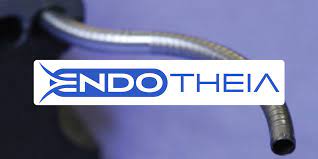A medical device company co-founded by a Vanderbilt engineering professor recently announced the completion of a successful first-in-human clinical study using its innovative technology that radically improves minimally invasive endoscopic surgery.
 Robert J. Webster III, Richard A. Schroeder Professor of Mechanical Engineering and associate professor of medicine and urology at Vanderbilt University, is co-founder and president of EndoTheia, Inc. Earlier this year the company received a breakthrough device designation from the U.S. Food and Drug Administration.
Robert J. Webster III, Richard A. Schroeder Professor of Mechanical Engineering and associate professor of medicine and urology at Vanderbilt University, is co-founder and president of EndoTheia, Inc. Earlier this year the company received a breakthrough device designation from the U.S. Food and Drug Administration.
Webster said the new technology answers the FDA’s call to transition to duodenoscopes with innovative designs to enhance safety, particularly in the treatment of biliary disease, which affects about 700,000 patients domestically each year.
Duodenoscopes play a vital role in the assessment and treatment of diseases and conditions of the pancreas and bile ducts. The devices have complex designs that include reusable hard-to-clean components. Failure to correctly reprocess a duodenoscope could result in tissue or fluid from one patient remaining in a duodenoscope when it is used on a subsequent patient. In rare cases, this can lead to patient-to-patient disease transmission, according to the FDA, which challenged medical device companies to create new, cost effective, disposable devices.
Webster said all primary and secondary endpoints were successfully met with no adverse events in the performance of the clinical study at Vanderbilt University that concluded July 5.
“EndoTheia is proud to have been able to respond to this call-to-action from the FDA in a unique and outside-the-box way,” said Webster. “We took a look at what others were doing within the space and saw mostly incremental advancements and/or costly fully disposable endoscope solutions.”
EndoTheia’s technology, based on extremely thin-walled, laser-machined metallic tubes, enables the creation of highly flexible, steerable devices that can pass through standard endoscopes, while also carrying within themselves interventional tools. The system eliminates the need for the duodenoscopes that concern the FDA.
“This device enabled us to clearly visualize the duodenal papilla en face with a standard forward-viewing endoscope, which normally would not be possible, and has the potential to eliminate the risk of infection from reusable duodenoscopes,” said Dr. Keith Obstein, Professor of Medicine, Division of Gastroenterology at Vanderbilt University Medical Center. “This would be a huge win for patients, hospitals, and healthcare systems.”
EndoTheia has licensed patents from Vanderbilt through the university’s Center for Technology Transfer and Commercialization (CTTC), which also supported the clinical study through CTTC’s Medical Products Support Services program. Launched in 2014, MPSS assists engineers, physicians, scientists, and other faculty investigators who are working to bring innovative medical products out of their laboratories, and progress them toward the marketplace.
Contact: Lucas Johnson, lucas.l.johnson@vanderbilt.edu